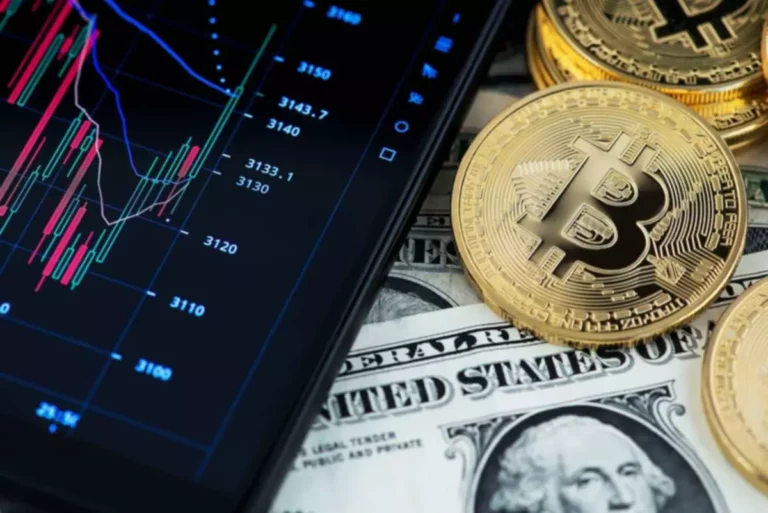AML for cryptocurrencies refers to the laws, rules, and policies put in place to prevent criminals from turning unlawfully obtained cryptocurrency into money. Cryptocurrency taxation is evolving quickly as governments worldwide work to manage digital belongings and enforce compliance. Understanding taxable events and correct reporting is vital to avoiding penalties and optimizing tax outcome. While the UK’s framework differs from the EU’s MiCA, UK crypto corporations focusing on EU markets should comply with UK and EU rules, including obtaining MiCA authorization and adhering to the Transfer of Funds Regulation (TFR) when offering services within the EU.

By adhering to those measures and collaborating with regulatory authorities, crypto exchanges can play an important role in combating money laundering and terrorist financing within the crypto business. Moreover, AML frameworks typically embody ongoing transaction monitoring and suspicious exercise reporting. This proactive approach permits corporations to detect and forestall potential cash laundering schemes, safeguarding their platforms and customers from monetary crimes.
By enhancing employees awareness and data, exchanges can create a culture AML Crypto of compliance and empower workers to identify and reply to potential AML risks successfully. Guaranteeing that staff members are well-informed and educated about AML compliance is essential in sustaining an efficient program. Crypto exchanges ought to present regular training to their employees on AML laws, the exchange’s AML policies and procedures, and the latest tendencies and typologies in money laundering and terrorist financing. To obtain full AML compliance, crypto exchanges should prioritize the implementation of CDD and KYC procedures, establish robust transaction monitoring methods, and preserve complete data whereas fulfilling reporting obligations. By adhering to these key necessities, exchanges may help keep the integrity of the crypto industry and foster a safer and more clear setting for all members. In addition to regulatory compliance, expertise solutions corresponding to AML screening tools, blockchain analytics, and collaboration platforms can further improve AML efforts in the crypto business.
Cryptocurrencies have turn out to be increasingly popular in recent years, with businesses and individuals utilizing them… Failure to acquire the necessary licenses or registrations may find yourself in authorized penalties and considerably hinder a business’s operations. Ongoing workers training applications and regular audits are important to an effective AML risk management strategy.

Final Guide To Aml For Cryptocurrency
The Regtech market is predicted to grow to $29 billion by 2025, exhibiting a big rise in funding and acknowledgment. As blockchain know-how advances, its integration with Regtech will doubtless improve the efficiency and security of AML operations while additionally offering a strong protection towards monetary crime within the increasing crypto ecosystem. Since centralized exchanges hold custody of users’ property, much like how traditional banks do, many laws and licensing schemes will apply to them.
Collaboration and knowledge sharing platforms facilitate effective communication and cooperation between crypto exchanges and relevant authorities, similar to law enforcement agencies and regulatory bodies. These platforms provide a secure surroundings for the change of knowledge, together with suspicious activity reports and other related data. Crypto exchanges face inherent risks of money laundering and terrorist financing because of the pseudonymous nature of cryptocurrencies. Criminals can exploit these traits to obscure the origins and locations of funds, making it challenging to trace illicit activities. Operating in the cryptocurrency space exposes crypto exchanges to unique risks and challenges, significantly in relation to money laundering and terrorist financing. Additionally, navigating the regulatory landscape specific to cryptocurrencies presents its personal set of challenges.
Way Ahead For Aml In The Cryptocurrency Market
Cryptocurrency exchanges operating in the United States must abide by KYC and AML laws since failure to take action might result in closure. The Monetary Crimes Enforcement Community (FinCEN) goals to safeguard the monetary system towards illicit activity by requiring these exchanges to hold out KYC checks and put in place efficient AML techniques. These tools evaluate pockets activity, transactional history, connections to recognized illicit addresses, and supply a danger rating or score category. Technological developments, similar to blockchain forensics, KYT (Know Your Transaction), and AI-driven transaction monitoring systems, are being adopted to detect rising laundering typologies in real time. Its updated steerage emphasises that Virtual Asset Service Providers (VASPs) must meet the identical AML expectations as conventional financial institutions. In 2022, the United Arab Emirates was positioned on the FATF grey listing because of insufficient enforcement of AML/CFT measures, including gaps in virtual asset oversight.
Varied regulatory bodies and authorities play an important role in overseeing AML laws within the crypto sector. These entities develop and implement regulatory frameworks, conduct audits, and examine suspicious actions. Exchanges should set up sturdy record-keeping procedures, including the retention of transaction knowledge, customer identification documents, and communication information. These data should be securely saved and easily accessible for regulatory and regulation enforcement purposes.

Travel Rule compliance is an integral part of AML efforts.The Journey Rule for crypto belongings mandates that VASPs to send, obtain, and sanction screen customer personal data alongside a crypto transaction over a specific threshold. Since 2017, cybercriminals have laundered over $33 billion in cryptocurrency, most of which has since been moved to centralized exchanges. By comparability, the United Nations Workplace on Drugs https://www.xcritical.in/ and Crime estimates that between $800 billion and $2 trillion in fiat currency is laundered yearly — as much as 5% of global GDP.
- The activities of permitted payment stablecoin issuers generally shall be limited to the issuance, redemption, and administration of, and providing of custodial or safekeeping services for, cost stablecoins.
- It is crucial for exchanges to have robust transaction monitoring techniques in place to detect suspicious activities and prevent cash laundering and other illicit activities.
- This world dedication to combating cash laundering and terrorist financing has established standards and directives that also apply to the crypto industry.
- From a authorized structuring standpoint, the important thing distinction between CEXs and DEXs lies in the reply to the query, «Who owns the users’ assets?».
- Establishing strong relationships with these entities permits for the exchange of data and intelligence on rising threats and illicit actions.
Presently, cryptocurrency exchanges, stablecoin issuers, and a few DeFi protocols or NFT marketplaces fall into the digital asset service provider (VASP) class. All firms which are thought of to be VASPs ought to use KYC checks and transaction monitoring to ensure compliance with AML requirements. Due to the accessibility of digital belongings and overall monetary inclusion, through the years, crypto has proved to be a “reliable” channel for illicit actions. Using crypto, fraudsters might try to move illicit funds with minimal digital footprints, making the detection difficult. A compliance program for crypto exchanges includes a set of policies Initial exchange offering and procedures designed to meet regulatory compliance obligations. Strong compliance programs help exchanges mitigate danger and adjust to evolving regulations in the digital asset area.
Partner links from our advertiser:
- Real-time DEX charts on mobile & desktop — https://sites.google.com/walletcryptoextension.com/dexscreener-official-site-app/ — official app hub.
- All official installers for DEX Screener — https://sites.google.com/mywalletcryptous.com/dexscreener-apps-official/ — downloads for every device.
- Live markets, pairs, and alerts — https://sites.google.com/mywalletcryptous.com/dexscreener-official-site/ — DEX Screener’s main portal.
- Solana wallet with staking & NFTs — https://sites.google.com/mywalletcryptous.com/solflare-wallet/ — Solflare overview and setup.
- Cosmos IBC power-user wallet — https://sites.google.com/mywalletcryptous.com/keplr-wallet/ — Keplr features and guides.
- Keplr in your browser — https://sites.google.com/mywalletcryptous.com/keplr-wallet-extension/ — quick installs and tips.
- Exchange-linked multi-chain storage — https://sites.google.com/mywalletcryptous.com/bybit-wallet — Bybit Wallet info.
Dejar una contestacion